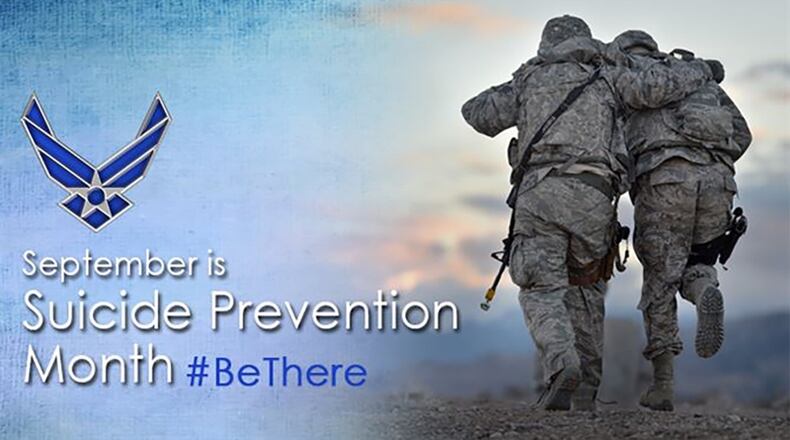“Time can save lives,” said Capt. Stephanie Golden, 386th Expeditionary Medical Group psychologist. “Letting us help early on can change a finite decision such as ending your life, hurting your relationship or having poor work performance. By helping you sooner, we can make sure you can stay mission capable and we can save a life in the process.”
Mental health professionals spoke about proactive measures that address the issue before it becomes a reactive problem.
“No one gets to hear our good stories,” Golden said. “I have patients in my caseloads with top-secret clearances and no one knows… you don’t know if the person next to you working is seeking mental health because we get to keep that information private.”
To break the stigma, mental health technicians tackle the negative bias associated with the program head-on.
“Note that we do have to break confidentially sometimes, but that’s only for high-risk cases and those are relatively rare,” Golden said. “Yes, we can’t promise that won’t happen, but unfortunately those rare cases are the ones that people see. They see when we have to recommend not arming someone; they see when we have to limit someone’s duties, but they do not see the bulk of our patient load, the ones those are not high-risk because those we can keep confidential.”
Mental help technicians suggest that one major way to change the cycle is to use success stories to positively influence and motive those seeking help to come forward.
“A big way to change the narrative is for people that have those success stories to feel comfortable in sharing those,” said Staff Sgt. Rebecca Proulx, 386th EMDG mental health technician. “Let others know that they sought help and it was not a career-ender. ‘Hey I did seek mental health care and I made it this far in my career…’ Obviously, we can’t force people to share, but I think if they did it would create an environment where others would feel comfortable to open up and talk about their struggles.”
While changing the narrative can positively influence others, Airmen are also encouraged to change how they interact with their wingmen.
“Building togetherness between co-workers creates and allows people to reach out more,” said Tech Sgt. Brandon Woods, 386th EMDG mental health technician. “Changing our culture starts in the unit level, some things we can do include broadening our social network, leaning on the people you are with, the friends that you know, your family, those that you feel comfortable with.
Mental health providers can offer a variety of tools to strengthen resiliency and those tools prove effective when used at the first sign of trouble.
“I think of the brain as a muscle,” said Capt. Eunice Kim, 386th EMDG mental health officer. “So if you look at fitness and wellness in the same capacity as mental fitness, you see that just like strengthening your muscles you can also learn to strengthen your brain. Coming to mental health it’s not just about depression and anxiety it can also be preemptive, you can come into learn about different shortcuts or tools that you can use to make yourself more resilient, more efficient, make yourself a better runner a better shooter a better husband or friend, it’s just self-improvement.”
Airmen are reminded of their importance to their peers and the mission.
“The stress and feeling of helplessness that drives an Airman to believe there is no hope and no help is a fallacy,” said U.S. Air Force Col. Rod Simpson, 386th Air Expeditionary Wing commander. “Each of our teammates brings vital energy and expertise to the mission. Know that your peers, subordinates and leadership care deeply about you. Together we will do everything to get you or that person you know help right now. Please don’t feel like a permanent solution is the only option. There is nothing magic about the Air Force being at 50 or 80 or 100 suicides in a given year. The tragedy is at the first and everyone after. Allow us to prove we care—speak up, lend a hand, take a hand.”
For more information on appointments or walk-ins, contact your local mental health clinic. Resources are also available online at visit www.militaryonesource.com and www.veterancrisisline.net.
About the Author
